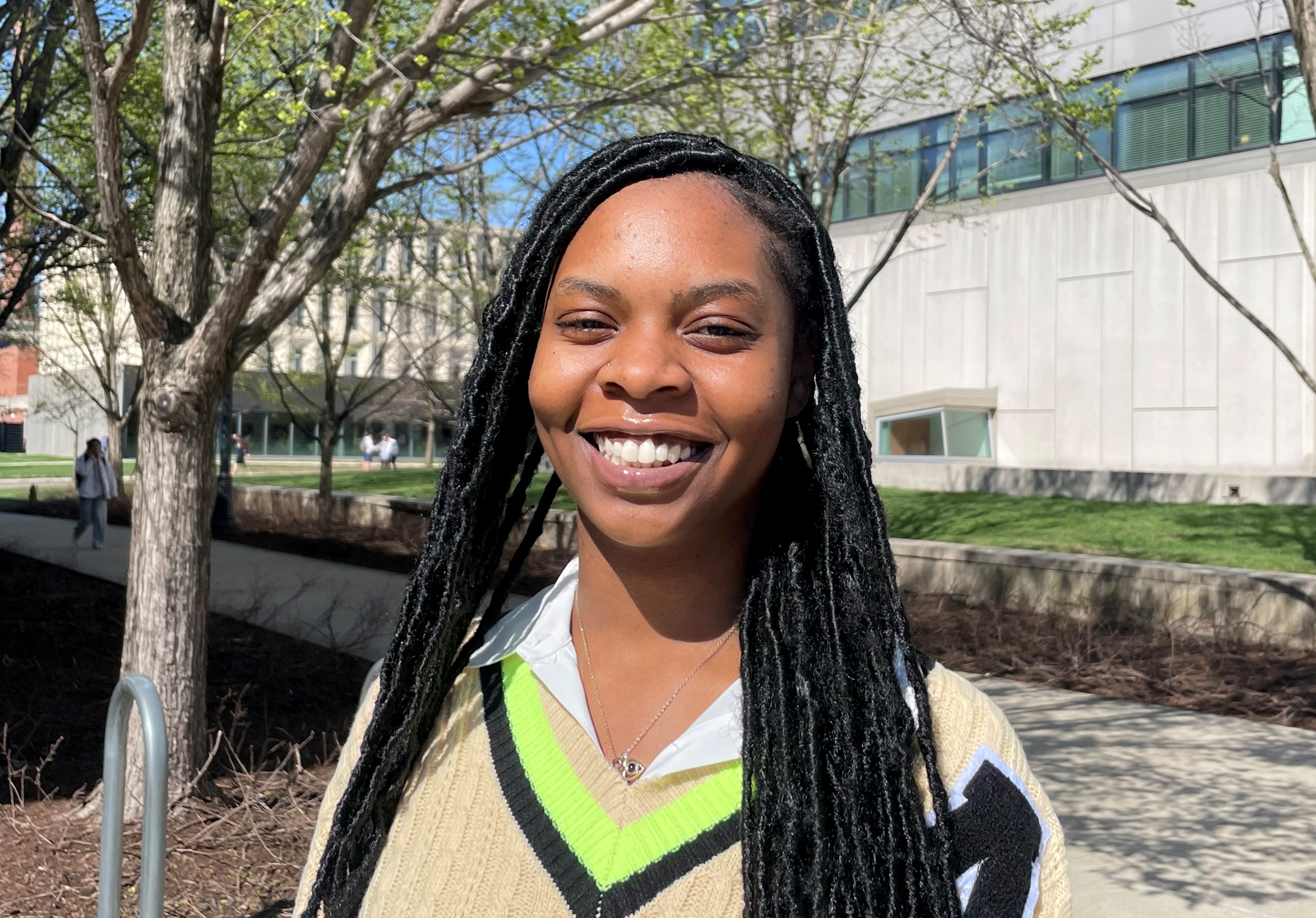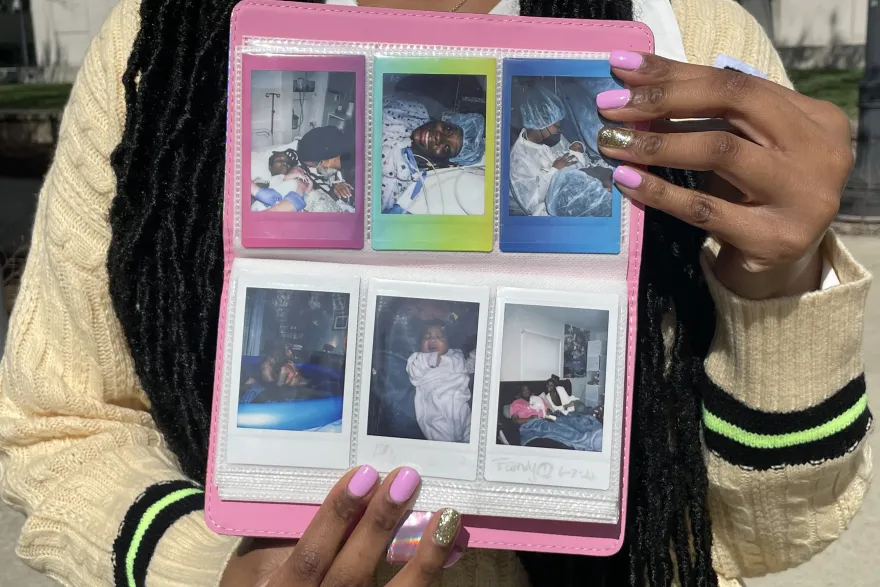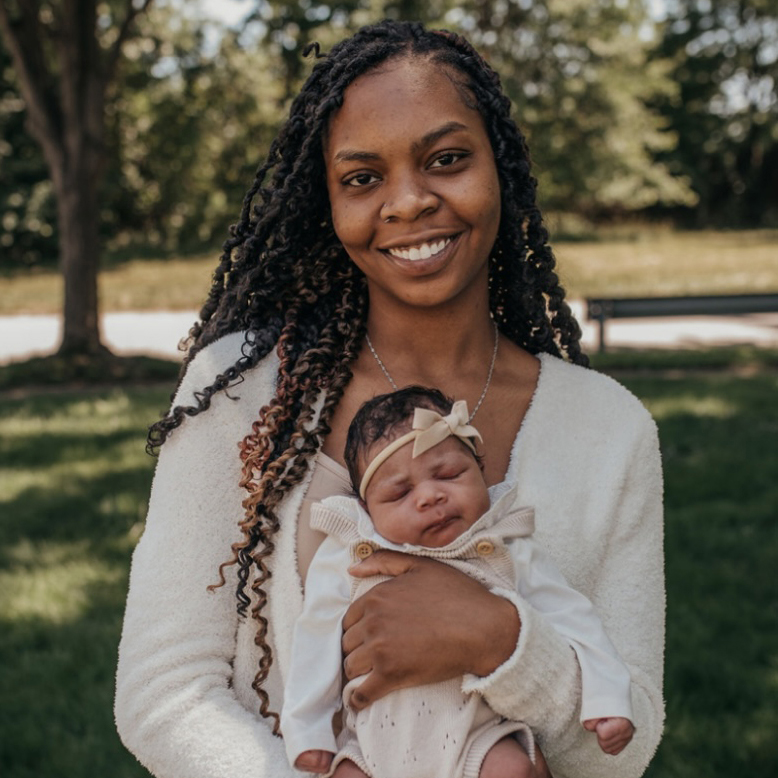Summernickol Stewart brings ‘nurturing side’ to doula work
BSPH student supports pregnant people before, during and after childbirth
By Kristen Mitchell

Summernickol Stewart, a senior majoring in public health, puts her passion for reproductive justice into practice through her work as a birth and postpartum doula — a care provider who gives emotional and physical support to pregnant people before, during and after childbirth.
Stewart was drawn to working in maternal health after taking Epidemiology in Public Health her sophomore year, an introductory course covering history, methods and issues in the field.
Disheartened to learn that Black women are three times more likely to die from pregnancy-related causes compared to white women, Stewart said she knew then she wanted to commit her life to improving maternal health equity.
“I’ve always had a nurturing side,” she said. “I did some research and learned what a doula is and how that really changes your outcome when it comes to labor and delivery. I thought after college I could do that, but then COVID happened, and I had so much time on my hands. I took a training, became a doula and then got in the field to start the work.”
Stewart has worked alongside nearly a dozen women during childbirth since she became a doula in 2020, working during summer breaks in Cleveland. Doulas offer an array of support during delivery, including helping moms find more comfortable positions during labor, communicating their needs and preferences with medical staff and using massage to aid rest and relaxation.
Stewart, 22, will continue her doula work after she graduates in May. She plans to train to become a midwife and eventually open a birth center — a facility that balances the comforts of birthing at home with medical resources. Graduation will mark an important academic achievement in Stewart’s life, and will also be a celebration of her resilience. Stewart’s father passed away in 2021, and at times, she questioned whether she wanted to continue school.
James Odei, assistant professor of biostatistics and a mentor to Stewart, pushed her to continue working toward her degree.
“She is somebody the college can look up to if they want an example of somebody who is determined, who can survive through the tough times to keep a dream alive,” he said.

Doula work
Research shows access to community-based doula care supports positive maternal outcomes. Every birthing parent’s needs are different, Stewart said, but a doula being there to help goes a long way for a successful birth.
The most rewarding part of the job is “seeing someone change right before your eyes and welcome that baby into their life.”
Cheyla Robinson, who gave birth to a son in August, planned to have a doula support her during her homebirth. When the provider she had gotten to know leading up to her due date was not available, Stewart stepped in.
“Her energy was just amazing,” Robinson said. “She was very caring for me and my needs and my concerns. She was amazing in helping me through my contractions.”
Stewart helped Robinson with breathing exercises throughout her labor and created photo keepsakes to capture memories. She also checked in on Robinson in the weeks following the birth.

Jacqueline Southern felt like she was starting over from scratch when planning for the birth of her son, she said. It had been eight years since her last baby and, after doing research, she knew she wanted to work with a doula. Stewart worked with Southern on how to use an exercise ball and other techniques to prepare for childbirth and advocated for Southern while she was in labor.
Southern said Stewart was a valuable member of her support system after she gave birth in July.
“She’s become more family than a doula — she really put her heart into everything she did,” Southern said. “She went above and beyond.”
Stewart also shares tips and tricks on TikTok, which gives her the ability to reach parents-to-be who may not have their own doula “anywhere and everywhere”. Doulas also provide postpartum support, including assistance with breastfeeding and teaching parents how to care for their newborn.
“People don’t always understand that role. Even if you don’t birth with a doula, just know reaching out to a doula and getting some education during your pregnancy, that’s a great component,” she said.
Stewart hopes to use her future birth center in part to support the comprehensive needs of pregnant people and new parents.
“I want to support homeless moms and people who have nowhere to go,” she said. “So, we need extra rooms to house you, help you get a job, stay fed, things like that. I really want to uplift women and show them they have power, no matter what stage of life they’re in.”